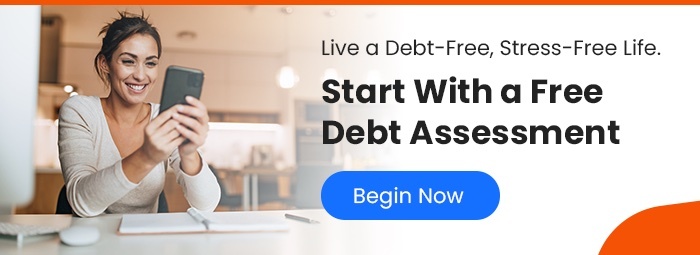
You just know something is going on with your friend. She seems to be avoiding you and when you do speak, something is missing. You ask her if everything is okay and she claims she’s fine – but fine can mean “not good”. You run through things in your mind (a checklist of sorts) she isn’t ill, no one in her family is ill, she is working, eating, has plenty of friends, etc. So, what could be wrong? You are about to let it go when you realize she doesn’t want to go out for dinner anymore, she is too busy to go shopping and she changes the subject when you mention the vacation the two of you had considered going on. Maybe she is having money or debt problems. But why wouldn’t she tell if she was?
Finances, money and debt seems to be one of the worst taboos. People don’t want to admit they can’t budget, they don’t have savings or they are falling behind with their debt payments. Over the years that I have been a credit counsellor, it is amazing how long people wait before they seek help. Why? Finances are very private and many feel ashamed when they aren’t in control of theirs or they feel stupid because they can’t budget.
So how can you help your friend?
-
Since she hasn’t mentioned the problem to you, you may not feel comfortable asking her directly. You could mention that you saw that Credit Canada was having a free money management workshop and you wondered if she would go with you.
-
If you are comfortable enough, you could ask if she is running into problems with her finances. . You can acknowledge you know finances are personal but that there is no shame in asking for help. I always used the example of dental problems. If you have a toothache, you aren’t afraid to ask for a referral to a dentist, so you shouldn’t be afraid to ask for help with your finances.
-
She acknowledges she is behind but she doesn’t want to go for help but says you can help her. You can check out www.creditcanada.com and see what tools are available to help you help her. This is the first step – when she is more comfortable she may be ready to meet with a certified credit counsellor to see what programs are available to help her deal with her debt problems. She may benefit from a Debt Consolidation Program.
-
Resist the temptation to bail her out. That is only a short-term fix. She needs to learn how to manage her money and her debt. She needs to accept what she can afford to spend. She needs to learn how to help herself. Many parents have run into their own financial problems because of helping their kids. The word NO could be the first step in your friend’s road to financial recovery.
What not to do:
-
Don’t lecture her. The last thing she wants is to be made to feel bad about herself.
-
Don’t assume she has the same knowledge that you do. Financial literacy is a learned skill – it isn’t something we are born with. She maybe didn’t learn about finances at school or at home. Or, she may have picked up poor financial habits from her parents. We learn from what we are taught but also from what we observe.
You can help your friend with her financial difficulties. Be sensitive to her feelings. Help her get the tools she needs to deal with her finances. But know when she needs more help so that you can provide it. . And let her know there is no shame in seeking further help from a professional. A certified credit counsellor won’t judge or lecture her. The counsellor will assist her in achieving her financial goals. Book a free counselling session with a certified professional credit counsellor today!

Frequently Asked Questions
Have a question? We are here to help.
What is a Debt Consolidation Program?
A Debt Consolidation Program (DCP) is an arrangement made between your creditors and a non-profit credit counselling agency. Working with a reputable, non-profit credit counselling agency means a certified Credit Counsellor will negotiate with your creditors on your behalf to drop the interest on your unsecured debts, while also rounding up all your unsecured debts into a single, lower monthly payment. In Canada’s provinces, such as Ontario, these debt payment programs lead to faster debt relief!
Can I enter a Debt Consolidation Program with bad credit?
Yes, you can sign up for a DCP even if you have bad credit. Your credit score will not impact your ability to get debt help through a DCP. Bad credit can, however, impact your ability to get a debt consolidation loan.
Do I have to give up my credit cards in a Debt Consolidation Program?
Will Debt Consolidation hurt my credit score?
Most people entering a DCP already have a low credit score. While a DCP could lower your credit score at first, in the long run, if you keep up with the program and make your monthly payments on time as agreed, your credit score will eventually improve.
Can you get out of a Debt Consolidation Program?
Anyone who signs up for a DCP must sign an agreement; however, it's completely voluntary and any time a client wants to leave the Program they can. Once a client has left the Program, they will have to deal with their creditors and collectors directly, and if their Counsellor negotiated interest relief and lower monthly payments, in most cases, these would no longer be an option for the client.






